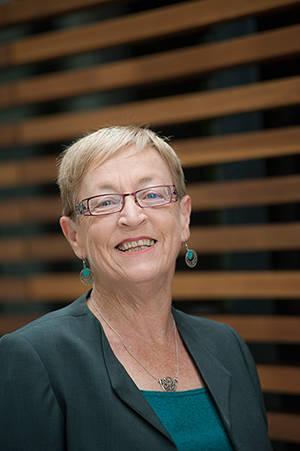December 9, 2015
Health care visionary acknowledged with top award
Professor Kathy Eagar’s determination in striving for better health care has earned her the prestigious Health Services Research Association of Australia and New Zealand Professional Award (HSRAANZ).

The award, presented to Professor Eagar in Melbourne, is given biennially to an individual who has made an outstanding contribution to the development of health services research in Australia and New Zealand.
In presenting the award, HSRAANZ President Professor Jon Karnon outlined the leading role that Professor Eagar has played in the field in Australia and internationally over the past two decades, through both her own research and in her role as Director of the Australian Health Services Research Institute at UOW.
Accepting the award, Professor Eagar highlighted that the main driver of her work was helping to improve health care overall.
She identified five perennial health issues of major concern to the community – quality, safety, accessibility, efficiency and better outcomes.
In a report on ‘Croakey’ online, Professor Eagar said currently there was a lot of concern in the community about the future of mental health and the lack of success we have had in building evidence-based systems that work.
Professor Eagar nominated three key areas in which health services research has had a major impact: (1) The development of Casemix classification funding models which have moved health services from being paid on a historical basis to being paid on the basis of their activity; (2) Recognition of the importance of sub-acute care as 20 years ago the main components of the health care system were seen as GPs and hospitals. Health services research has identified and supported the importance of sub-acute services such as palliative care, rehabilitation and geriatric care; and (3) Recognition that patients are driven by more than their diagnosis and the need to be systematic about how we measure patient needs and outcomes.
Professor Eagar began her career as a clinician and then as a health service manager before moving into health services research.
It was in her role as a health services manager that she noticed the lack of available evidence on what worked and what was needed to improve health outcomes. Professor Eagar identified the need to develop an evidence base for health care and to put this in the hand of decision makers.
Professor Eagar’s vision is for a health care system where there is no distinction between academic, clinician and manager – with people in all three roles involved in evidence-informed management and practice-informed research.